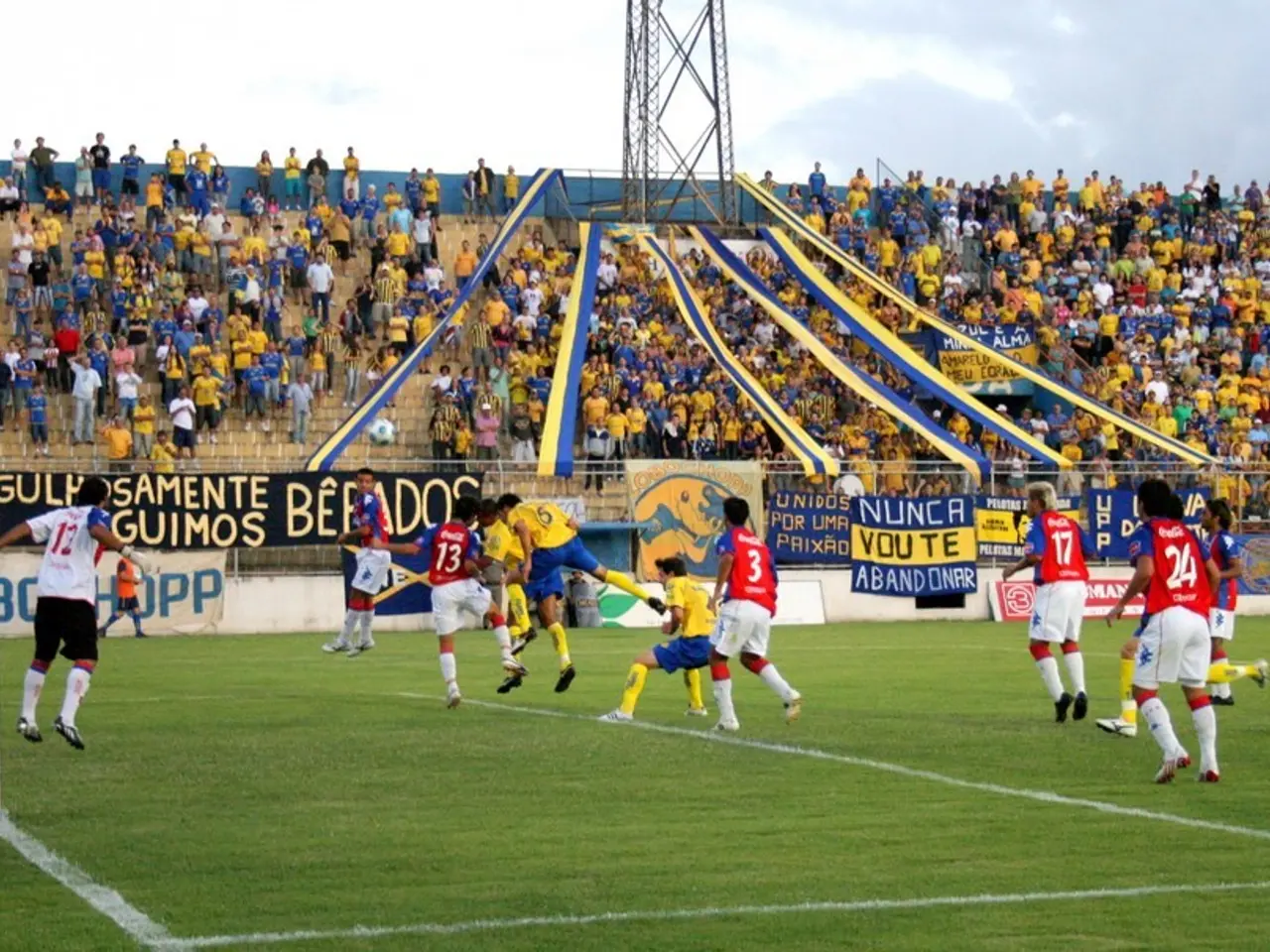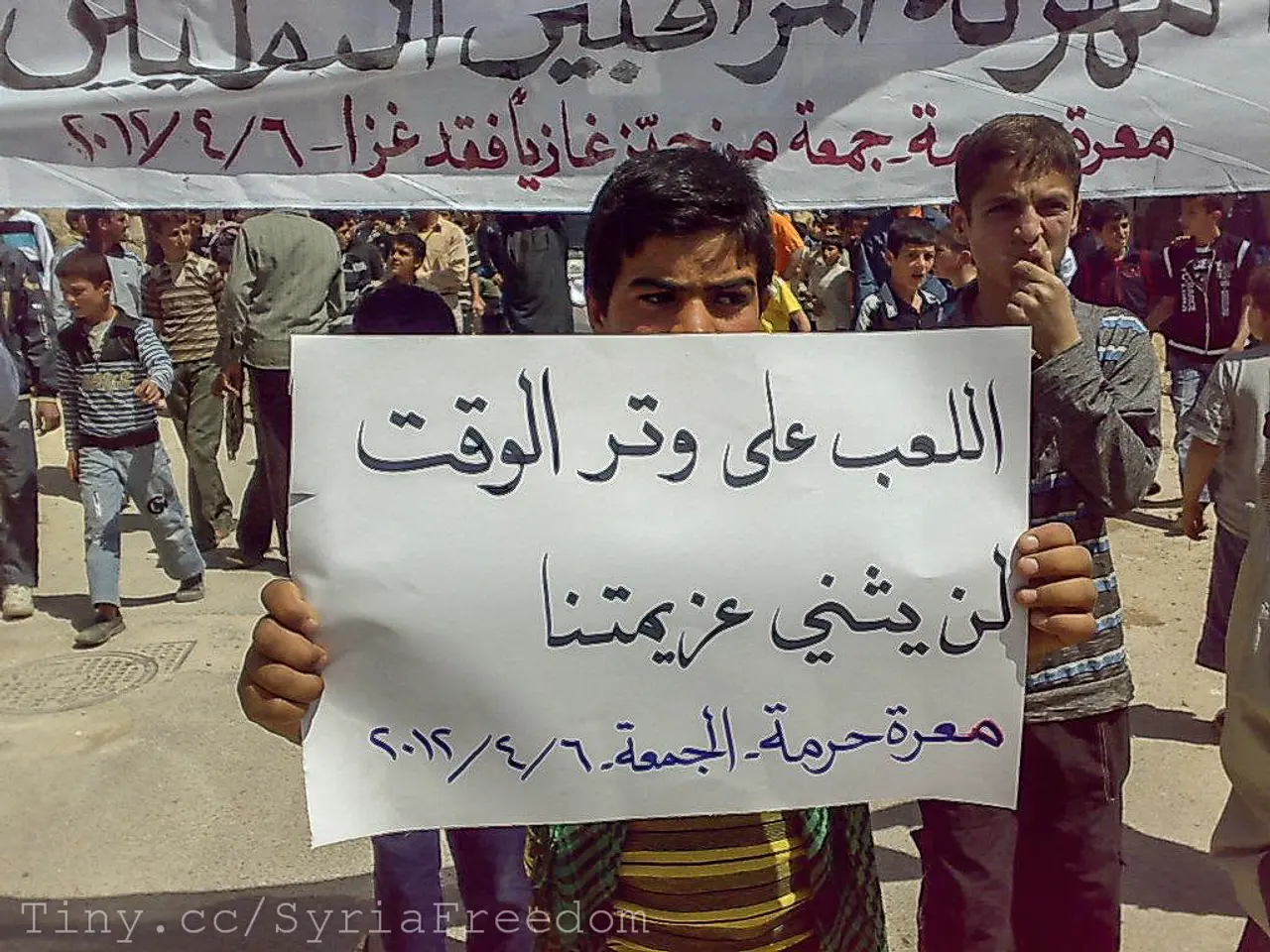Portuguese football arbitration to undergo public assessments every 10 days
The Portuguese Football Federation's (FPF) Arbitration Council, led by President Luciano Goncalves, has announced a series of measures aimed at enhancing transparency and openness in the arbitration process for the upcoming season.
One of the key initiatives is a public evaluation of referees, making their performances more transparent to fans, clubs, and media. This move is in line with FPF's commitment to increased transparency and follows similar reforms in other European football leagues.
In addition, an educational program will be created to better explain refereeing decisions and VAR usage. This program is designed to enhance understanding of the decision-making process among coaches, players, and referees themselves.
Another significant step is the public review and explanation of VAR incidents. Detailed technical explanations and video evidence will be published for significant match decisions to clarify contentious moments and improve acceptance, as practiced in leagues such as UEFA Women’s EURO 2025.
While Luciano Goncalves did not specifically mention changes to the public evaluation schedule every 10 rounds or the VAR review process, these practices are common in European football leagues. For instance, in Serie A from the 2025-26 season, referees will explain VAR decisions in real-time following on-field reviews, increasing direct transparency in communication.
The publication of audio from referee and VAR conversations and the dissemination of technical VAR decisions have also been shown to improve stakeholders’ understanding of complex calls.
Luciano Goncalves' message emphasises the importance of transparency and openness in the arbitration process. He aims to ensure open dialogue about the performances of arbitration teams throughout the season and to facilitate understanding of the Arbitration Council's functioning for sports agents and fans.
The quality evaluation of the arbitration teams will be disclosed on the FPF website, using metrics such as "satisfactory", "unsatisfactory", or "good". However, Luciano Goncalves did not mention any changes to the metrics used for quality evaluation of arbitration teams.
In conclusion, the FPF Arbitration Council's transparency measures for the new season include public referee evaluations, educational programs to improve stakeholder knowledge, and transparent, explained VAR review incidents with multimedia support. These steps are designed to foster trust and clarity around refereeing decisions, making football more enjoyable and fair for everyone involved.
[1] UEFA Women’s EURO 2025 Transparency Initiatives: https://www.uefa.com/womenseuro/news/newsid=2828628.html [2] Serie A Transparency Initiatives: https://www.legaseriea.it/news/news/2023/05/01/real-time-var-decisions-in-stadiums-and-on-tv-from-2025-26-season-2641493 [4] The Impact of Transparency Initiatives on Stakeholder Understanding: https://www.researchgate.net/publication/346116577_The_impact_of_transparency_initiatives_on_stakeholder_understanding_of_complex_calls_in_football
Sports transparency is further expanding, as the Portuguese Football Federation (FPF) plans to implement open evaluation of referees, aligning with the European football leagues' reforms, such as the Premier League. This evaluation will increase understanding of refereeing decisions among coaches, players, and the public.
In an effort to foster further understanding, the FPF Arbitration Council will also launch an educational program to explain refereeing decisions and VAR usage, following in the footsteps of UEFA's Women's EURO 2025 and Serie A's upcoming transparent VAR decision-making process.








